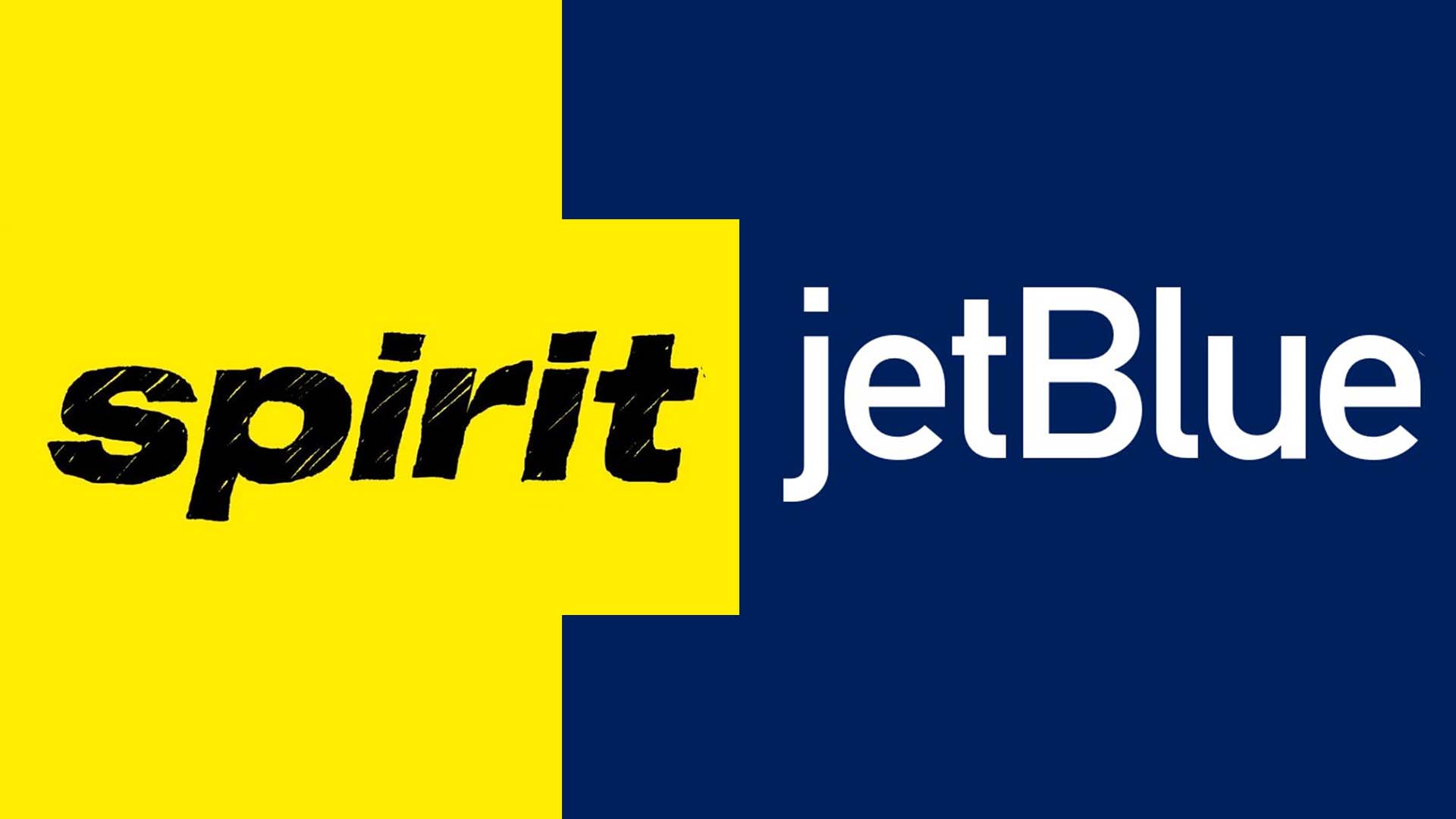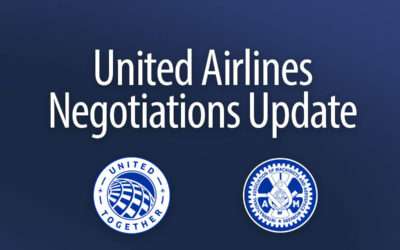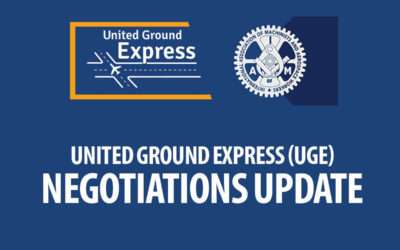JetBlue is Launching a Hostile Takeover of Spirit
Justice at JetBlue
21 April 2022
Earlier this month, Spirit Airlines rejected an offer by JetBlue to purchase the airline in a $33 per share, all-cash bid, preferring a merger with Frontier instead. On Monday, JetBlue announced a counteroffer: to launch a hostile takeover of Spirit.

The escalating tensions are pitting multiple sides against one another. On one side is the Board of Directors at JetBlue, who has thrown its total weight behind a link-up with Frontier. Another faction is made up of shareholders, who stand to see shares take a sharp spike in the event of an outright buyout. Yet another litigant is the government, which must decide if passengers would get fleeced by the new airline.
Lost so far in the discussions are the workers at JetBlue. For all the apparent urgency to strike a deal with Spirit as soon as possible, the company has yet to explain how a merger will impact the carriers’ non-union employees. They lack explicit legally-binding merger protections and face a tense, uncertain future at JetBlue. A condition the company seems in no hurry to remedy.
However, the union that represents ramp workers at Spirit has not been so silent. The International Association of Machinists and Aerospace Workers (District 141), reassured members at Spirit in February that their jobs and contractual rights would remain intact in a merger. “First and foremost, I want you to know that our newly-ratified contract with Spirit remains in full force,” said District President, Mike Klemm in a message to union members following speculation that Spirit might merge with Frontier. These rights include, “essential provisions that protect ramp workers’ jobs, seniority, and wages, among other vital protections, during a merger,” Klemm said at the time.
The plan to merge Spirit and Frontier became public in February of this year. The Spirit Board of Directors is still pushing for a merger with Frontier, while JetBlue is working to merge with Spirit, hoping to block the Spirit / Frontier tie-up.
Federal law requires companies like JetBlue to honor agreements made to unionized employees, even if those agreements originated with the company they are buying out. According to Federal labor rules, a company that takes over another business becomes more than just the new owner of that company’s assets. They also own the business’s liabilities. In other words, if JetBlue buys Spirit Airlines outright, they also pick up the union contracts and other agreements currently in place at Spirit.
Ground Operations workers at Spirit’s Fort Lauderdale station are unionized with the International Association of Machinists and Aerospace Workers (District 141). As part of their agreement with Spirit, these employees have vital contractual protections. Notably, they cannot be lawfully laid off or contracted out in the event of a buyout or merger with another airline. If Spirit’s union workers have to combine with JetBlue workers in the new airline, the unionized workforce has legally-binding seniority rules that companies must follow.
At airlines, an employee’s seniority is critical. Typically, airline workers determine their work hours and work area, days off, and other factors based on how long they’ve worked at the company or in their current position. For this reason, seniority rules are a vital area of focus for union contracts in the aviation industry, with very clearly laid out language.
Tragically, no such legal agreements exist for Ground Operations workers at JetBlue. These are the workers that load and unload the aircraft, guide them to and from gates, and oversee aircraft handling while on the ground and at gates. JetBlue Ground Operations workers have been trying to organize with the International Association of Machinists and Aerospace Workers, the same union representing similar workgroups at Spirit, American, and United, among other airlines.
JetBlue management has a wide range of options that it can consider imposing on non-union workers. Among these options; requiring existing employees to re-apply for their jobs. Such a move could allow JetBlue to purge “underperforming” employees and those with attendance or health issues.
Jetblue released a statement to investors saying that, long-term, a merger of some kind is necessary for the carrier. According to the airline, a buyout of Spirit would grant access to a large fleet of compatible Airbus planes, lucrative routes and help reduce an increasingly-critical pilot shortage. A merger with Spirit would make JetBlue the fourth-largest airline in America. For its part, Spirit rejected an opening offer to merge with JetBlue in early May, saying that Frontier was a better option
Jilted by Spirits’ Board of Directors, JetBlue turned to shareholders with a $30 / share deal and asked them to vote down the merger with Frontier. In response, Spirit’s Board has chosen to withhold critical information from JetBlue, which would usually be made available before a merger. This move prompted JetBlue to reduce its offer from $33 a share to $30, but the airline said it would still pay the higher price if Spirit changed its mind and opened the carrier’s books to JetBlue auditors.
Shares of Spirit closed on Friday at $16.98.
“If the Spirit shareholders vote against the transaction with Frontier and compel the Spirit Board to negotiate with us in good faith, we will work towards a consensual transaction at $33 per share, subject to receiving the information to support it,” JetBlue said.
JetBlue CEO Robin Hayes said in a memo, “we’re also offering to buy their shares, now at a price slightly lower than our original offer because the Spirit Board didn’t follow a fair process or allow us to look ‘under the hood’ like they allowed Frontier to do.”
An interesting plot twist involves Bill Franke, the former Chairman of Spirit, who is now the Chairman at none other than Frontier Airlines. It’s easy to speculate that his involvement could be part of Spirit rejecting JetBlue in favor of Frontier. However, Franke has not confirmed that he is pushing a Frontier-Spirit merger personally. Nevertheless, Robin Hayes seems eager to connect the two, alluding to the plot in his statement to employees.
“Our guess is that there are a lot of historical ties and personal relationships between the controlling shareholder of Frontier and some of the Spirit Board members who agreed to the Frontier deal.”
Spirit hasn’t directly denied the allegations but has insisted that its rejection of the JetBlue offer was based on the expectation that Federal regulators wouldn’t allow the deal on antitrust grounds. JetBlue is involved in a de facto merger with American Airlines called the “Northest Partnership,” centered in the Boston – New York markets. Last year, the Justice Department sued to stop that arrangement.
However, Spirit also rejected an offer by JetBlue to divest assets in Florida, New York, and Boston, which would have eased regulatory concerns. Additionally, JetBlue offered a $200 million contingency fee if regulators end up blocking a JetBlue / Spirit deal. The Spirit Board of Directors refused to agree to any of the proposals by JetBlue.
Employees at JetBlue should expect an eventual merger, no matter how the deal with Spirit shakes out, according to Frank Giannola. Giannola is Director of Membership Services at the Machinists and Aerospace Union, where he frequently helps non-union workers learn more about joining a union.
“This isn’t the first time that JetBlue has tried to hook up with another airline,” Giannola said. “Ground Operations workers at JetBlue have had to worry about partnerships with American, Frontier, and now Spirit,” he went on. “Spirit is just the latest. It’s obvious to anybody who’s looking that JetBlue is desperate to get a deal done with just about anyone that will take them,” he said. “The long-term health of this airline is not sustainable, and this is according to JetBlue, who keeps saying that they need these partnerships in order to compete,” he continued.
“I’ve heard all this before,” Giannola said. “I’ve been through three mergers myself with USAir. It’s clear that Jetblue has lost its identity, and is no longer a low-cost carrier. Today’s JetBlue is trying to compete with the Big Four airlines rather than get left behind. The Jetblue story almost reminds me of USAir – when it lost its identity and tried to merge with United twice, then wanted to merge with Delta, and then finally the airline took over American. That was also a hostile takeover. It’s the exact same thing today with JetBlue.”
“Nobody who works at a company like JetBlue should trust their managers to choose what’s best for employees and their families over what’s best for investors,” he went on. “Merger protections are critical in the modern airline workplace. Especially if it looks like a merger is more likely than not.”
“I’ve been in this business for a long time,” he said. “And, in my opinion, this only ends in a merger.”
Related News
United Negotiations Update for May 13, 2025
We are making steady progress on the Storekeeper contract proposals put forth by our membership. We held productive conversations on key areas such as increasing the use of 10-hour shifts—especially on midnight shifts—clarifying core work descriptions, and improving...
UGE Negotiations Update
We exchanged and discussed proposals regarding Section 4 (Hours of Service), with a focus on improving work schedules, meal periods, break times, and mandatory overtime—among other topics raised in your surveys and contract proposals.United Ground Express (UGE)...
United Airlines Negotiations Update
Our primary focus was discussing Article Four issues in the Passenger Service and Fleet contracts. Unfortunately, there continues to be a significant gap in the discussion over improving quality of life issues that are very important to our members, such as shift...




